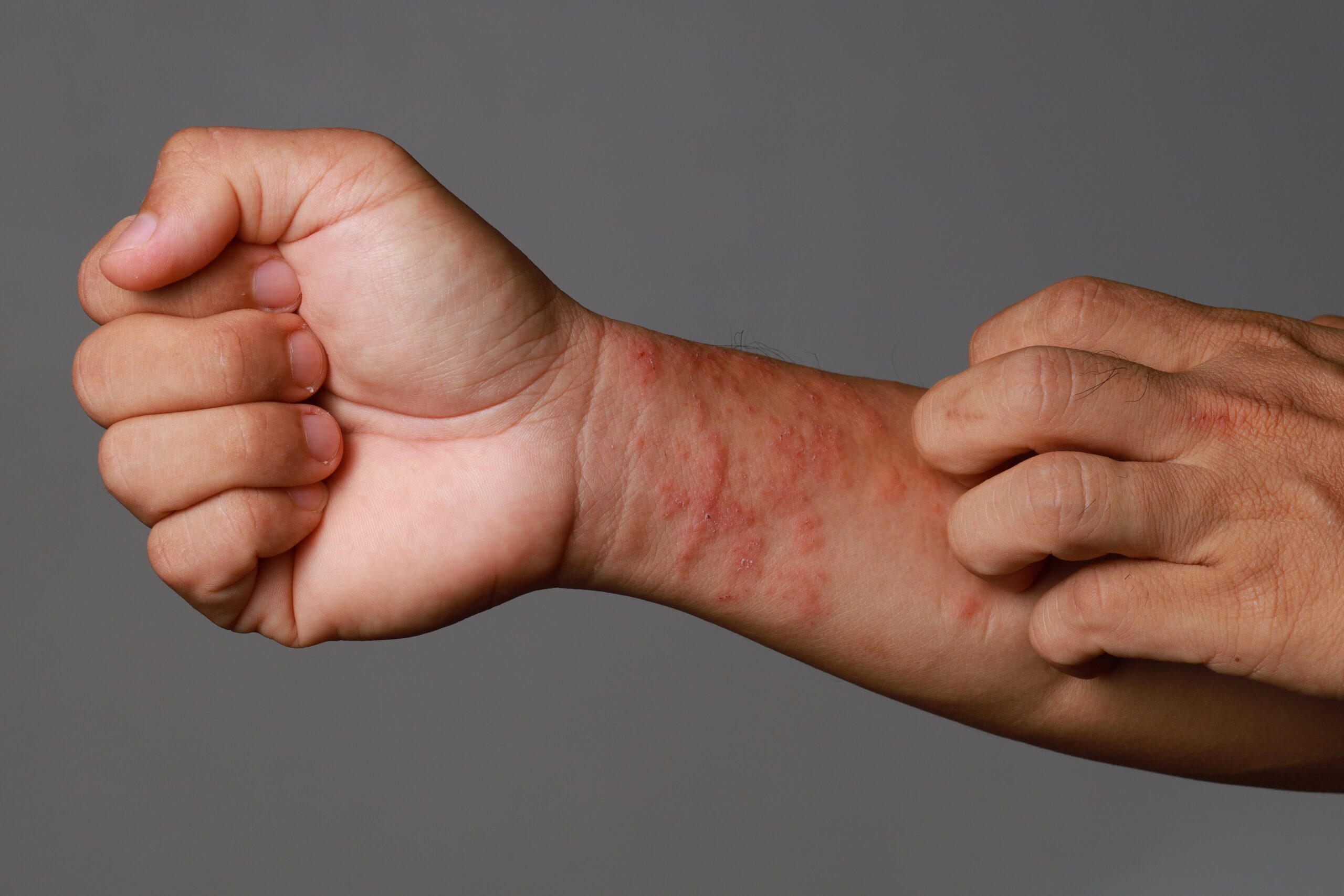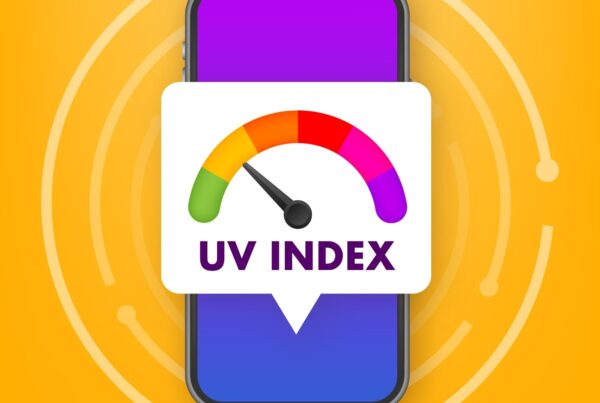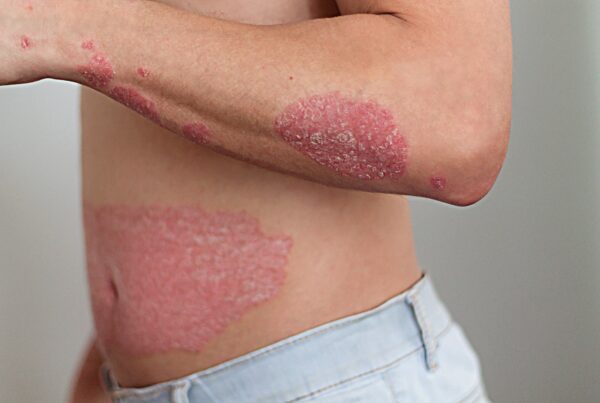Eczema is an umbrella term for a group of inflammatory skin conditions.
It can cause unpleasant symptoms like dry skin, itchiness, rashes, and flaky, scaly patches. In severe cases, eczema leads to blisters, skin infections, and scarring.
While many treatment options are available to help manage eczema symptoms, there is no cure for the condition.
If you have eczema, you may be wondering where to turn next. How do you manage your symptoms and reclaim your life, despite your skin concerns?
In this blog, we’ll share tips for soothing and healing itchy, irritated skin and managing your eczema symptoms.
Let’s dive in.
What Causes Eczema?
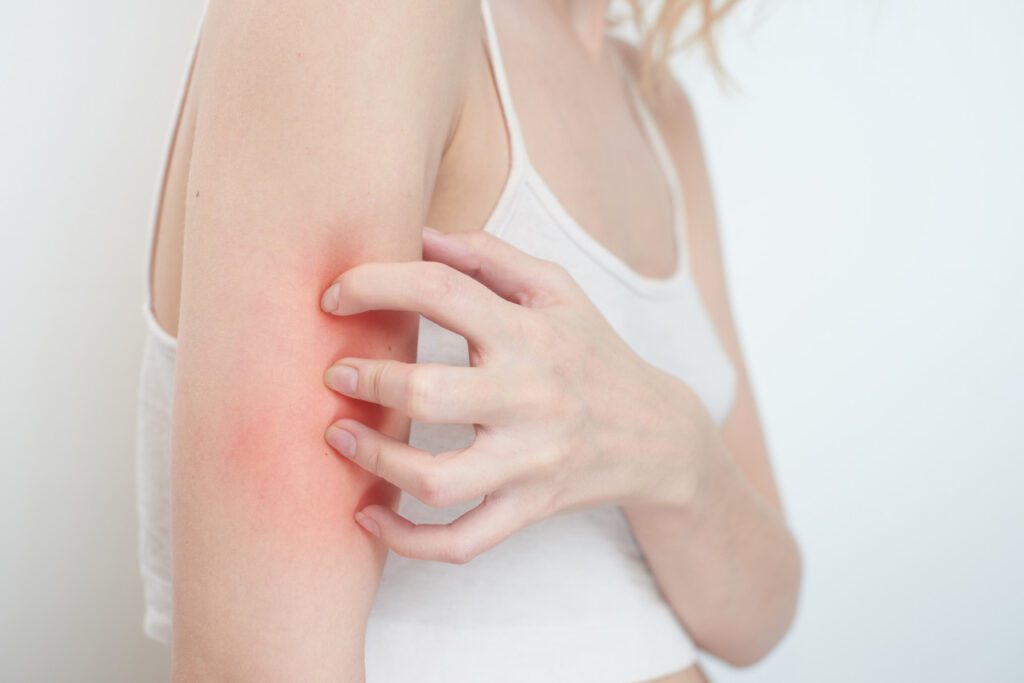
Today, doctors believe that several factors cause eczema. These include the following:
- Overactive immune systems. For people with eczema, the immune system overreacts to small allergens, irritants, and environmental triggers. When a person with eczema encounters a trigger, the immune system treats the irritant like a foreign invader, activating the body’s natural defense system and causing inflammation – the underlying cause of most eczema symptoms.
- Genes. You’re more likely to have eczema if your family has a genetic history of the condition. You’re also more at risk for eczema if you have a family history of allergies, asthma, or hay fever. In some cases, people with eczema also have a genetic mutation that impacts the skin barrier and keeps it from working the way it should.
- Environmental factors. Environmental factors like smoke exposure, air pollutants, harsh soaps and detergents, and the presence of certain fabrics – like wool – can trigger eczema. If you live in a hot, dry place, the environment may also cause your skin to become dry and itchy, while high humidity can cause sweating which makes eczema symptoms worse.
- Emotional triggers. Sometimes, your mental health can also affect your skin health. If you experience periods of high stress, depression, or anxiety, you may notice more frequent flare-ups of your eczema symptoms.
The Symptoms of Eczema
The symptoms of eczema include the following:
- Dry skin
- Itchy skin
- Skin rash
- Bumps on the skin
- Thick, leathery patches of skin
- Skin that is flaky, scaly, or crusty
- Swelling
Keep in mind that eczema symptoms look different from person to person.
People with dark skin tones may have eczema rashes that look brown, purple, or gray, while people with lighter skin tones may have eczema rashes that look purple, red, or pink.
Additionally, symptoms of eczema can appear anywhere on the skin, although they’re most common on the hands, neck, elbows, ankles, knees, feet, face, lips, and ears.
The Psychological And Emotional Impact Of Living With Eczema
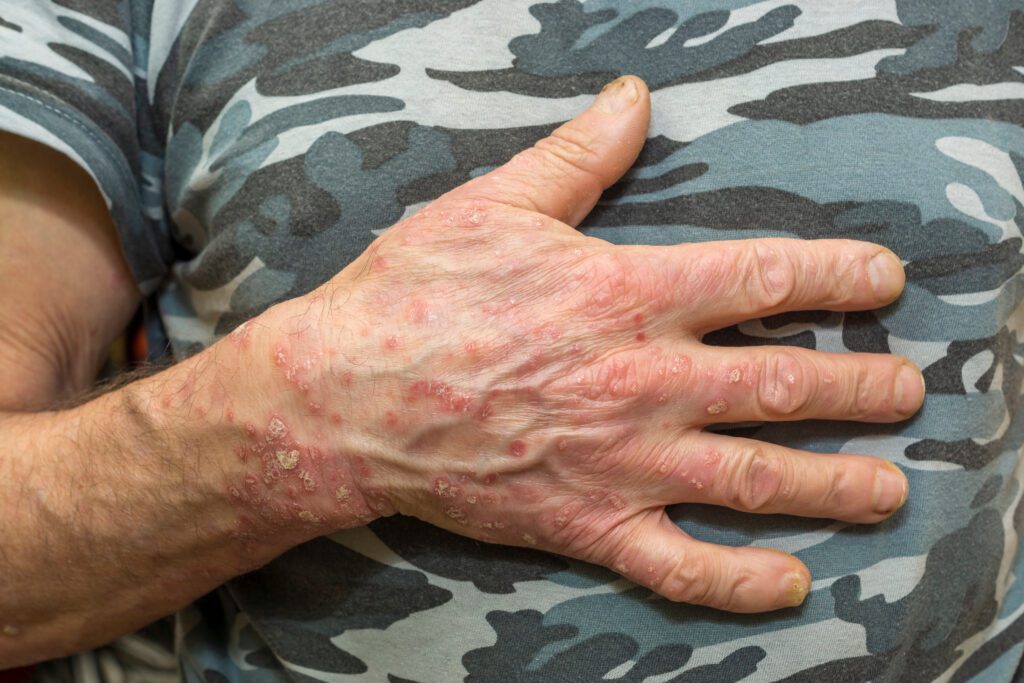
In addition to causing physical symptoms, eczema can cause troubling emotional and psychological symptoms, as well.
Some people with eczema report higher levels of stress, anxiety, and depression, while others feel more social isolation, low self-esteem, shame, and desperation.
If you’ve found that living with eczema has negatively impacted your mental health, it’s critical to get the help you need.
Talk to a therapist, ask your doctor for recommendations, or join an eczema support group to destigmatize the condition and find additional ways to cope.
The 7 Different Types of Eczema
According to the National Eczema Association, there are seven distinct types of eczema:
- Atopic dermatitis: This is a common form of eczema in young children, although it can occur in people of any age. It causes inflammation, dryness, and itchy skin.
- Contact dermatitis: Contact dermatitis is sometimes called allergic contact dermatitis and is caused by allergens or environmental triggers.
- Neurodermatitis: This condition is also called discoid eczema and is known to make small patches of skin itchy and scaly.
- Dyshidrotic eczema: Dyshidrotic eczema dries out the skin and typically causes rashes, blisters, and an unpleasant burning sensation.
- Nummular eczema: Sometimes called nummular dermatitis, this skin condition causes people diagnosed with it to develop small, round lesions on the arms, legs, and rest of the body.
- Seborrheic dermatitis: This is an inflammatory form of eczema that affects the scalp.
- Stasis dermatitis: Stasis dermatitis is skin discoloration on the lower legs due to poor blood circulation.
While each condition manifests differently, itchy skin is the most common symptom of each kind of eczema.
Eczema Treatment Options and Management Techniques

Eczema can be uncomfortable, but it’s also common. An estimated 31 million Americans have some form of eczema.
The condition also affects people of all ages. It can start in childhood, adolescence, and also adulthood.
If you have eczema, you may experience “flare-ups.” These are periods when eczema symptoms and side effects are acute.
Fortunately, effective treatments and management techniques can help you decrease your symptoms and also enjoy healthier, more comfortable skin.
Here are a few options dermatologists recommend:
- Moisturizers. Mild cases of eczema respond well to moisturizers. Rich moisturizers protect the skin’s outermost layer, which can be particularly thin and vulnerable. To find the right moisturizer for your eczema-prone skin, we recommend fragrance-free ingredients like oat or shea butter, glycerin, vitamin E, and also niacinamide.
- Antihistamines. Sometimes, eczema responds well to antihistamines. Options include Zyrtec, Allegra, and Claritin. If you’re considering starting an antihistamine, talk to your dermatologist and doctor first. Ultimately, the best antihistamine for your dermatitis is the one that manages your symptoms most effectively.
- Topical steroid ointments/corticosteroids. Moderate and severe cases of eczema may respond well to topical steroid ointments or corticosteroids like hydrocortisone and prednisolone. To get a prescription for these ointments, visit your dermatologist.
- Skin care regimens. Proper skin care is an effective way to treat eczema. Dermatologists recommend a gentle skin-care routine that includes mild and non-abrasive cleansers, lukewarm water for showers and baths, and gently patting (rather than rubbing) the skin dry. Apply moisturizers immediately after patting dry.
- Patients should also use non-irritating skin care products, avoid the sun, use SPF, and avoid any skincare products that cause stinging, burning, or redness.
Practical Tips for Soothing Irritated Skin
Sometimes, you’ll experience an eczema flare-up no matter what you do. When this happens, it’s critical to soothe the skin and decrease irritation.
Here are a few tips:
- Use proper bathing and showering techniques for eczema-prone skin. Keep the water lukewarm, rather than hot, and avoid scrubbing the skin with rough loofah or washcloths. Use gentle body washes, and pat skin dry after showering.
- Choose appropriate clothing and fabrics. 100% cotton is the most commonly recommended textile for people with eczema. This is because it’s soft, cool, good at absorbing sweat, easy to wash, and perfect for allowing the skin to breathe. With this in mind, look for 100% cotton clothing whenever possible.
- Create a soothing and eczema-friendly home environment. In addition to learning to soothe and dress irritated skin, you can create an eczema-friendly environment at home, as well. To do this, we recommend keeping the temperature in your home consistent, using a dust-mite-proof cover on your mattress and washing your sheets in hot water once a week, using gentle detergents without dyes or scents, and wearing gloves when you clean or do dishes.
Final Thoughts

While eczema is a common condition, it can also be a very difficult condition to live with.
And while there’s no cure, there are treatments that can effectively reduce or alleviate symptoms.
Regardless of what kind of eczema you have or how severe your symptoms are, treatment by a professional dermatologist is critical.
A dermatologist can help you find relief from your symptoms and explore various management techniques while also helping you avoid many of the most painful or challenging symptoms of the condition.
Looking for a dermatologist you can trust? Contact Dermatology Associates today to learn more about our team, our services, and how we can help you find relief from eczema.

